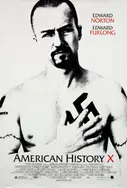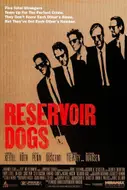books
Books like Liber Null and Psychonaut: An Introduction to Chaos Magic
Liber Null and Psychonaut: An Introduction to Chaos Magic
I wasn't terribly impressed with this book at the time I read it, although it does contain some interesting material. Essentially it is the compiled handbooks (or "libers") of the Illuminates of Thanateros (IOT, worked out by Peter Carroll and others during the 1970s and early 1980s. The IOT prides itself on exploring occult traditions while breaking with much of the hierarchy and stick-up-the-ass seriousness of traditional magical study. Chaos Magic, as I used to say, is what happens to you when you start to take Discordianism seriously (if you stop taking it seriously, you're in the Church if the Subgenius)."Liber Null," the first half of the text, is essentially a collection of working notes towards a syllabus in basic magic, it has many weaknesses. It is the sort of system that will work excellently for a certain type of student, and not at all for others, and which can only be adapted for different needs by an experienced Teacher. Indeed, this is the problem with most beginning books on magic; only very rare individuals can apply something directly from a book without interaction with others of varying levels of experience. While the book implies that the student may apply to the IOT, they are notoriously unresponsive (and may have published the book more to discourage inquiries rather than encourage them), and thus "study groups" of varying quality have spring up locally and on the internet.The other problem with publishing a program like this in book form is that students will tend to rush through it, having no guide to appropriate levels of progress, and will attempt powerful and impressive-looking Workings before they have truly mastered the basics (the concept of "Mastery" is one our current society is largely uncomfortable with in the first place). The first 11 pages of the book, "Liber MMM," could readily be a program of two or more years for an average student, but it doesn't look very impressive, and there's all those other pages with cool stuff to try, so people will rush ahead and start invoking Goetic spirits and messing around with "aethers" before they've learned the mind control techniques they need. This is also a reason that traditional schools used to dole out their wisdom very slowly, and guard it so jealously from the newer Initiates, but those days have been exploded, for better or worse, by the end of Secrecy in our culture."Psychonaut," the second half of the text, is a more philosophical discussion of Chaos Magic, and is more interesting from an outside perspective. It is composed of 40 short essays on subjects ranging from "Shamanism" to "Levels of Consciousness" to "Chemognosis." This latter, which refers to the use of chemicals for mind-altering purposes as a method of self-transformation has unfortunately become the bulk of Chaos Magic's legacy, although it's position in "Psychonaut" is far from central. As with the techniques in "Liber Null," it seems, without guidance students will make what they want of a magical text and follow the path of least resistance. Many independent Chaos Magicians one meets are little more than druggies with a spiritual justification for their habits. More important is the final essay, which explains Carroll's "Catastrophe Theory of Magic," one of the more original contributions of Chaos Magic to the field of occult study. It is essentially based in a topological model in which forms or paradigms are distorted without altering their perceived basic features.The work overall will be more or less useful to people who study it from differing backgrounds and perspectives. It has, no doubt, been a key text in the trainning of some very successful magicians. For me, it was a rather dry read with little new that tended to race through the more important subjects and leap to speculative areas. Your Mileage May Vary.
Filter by:
Cross-category suggestions
Filter by:
Filter by:
Filter by:
Filter by:
Filter by:
Filter by:
Filter by:
Filter by:


